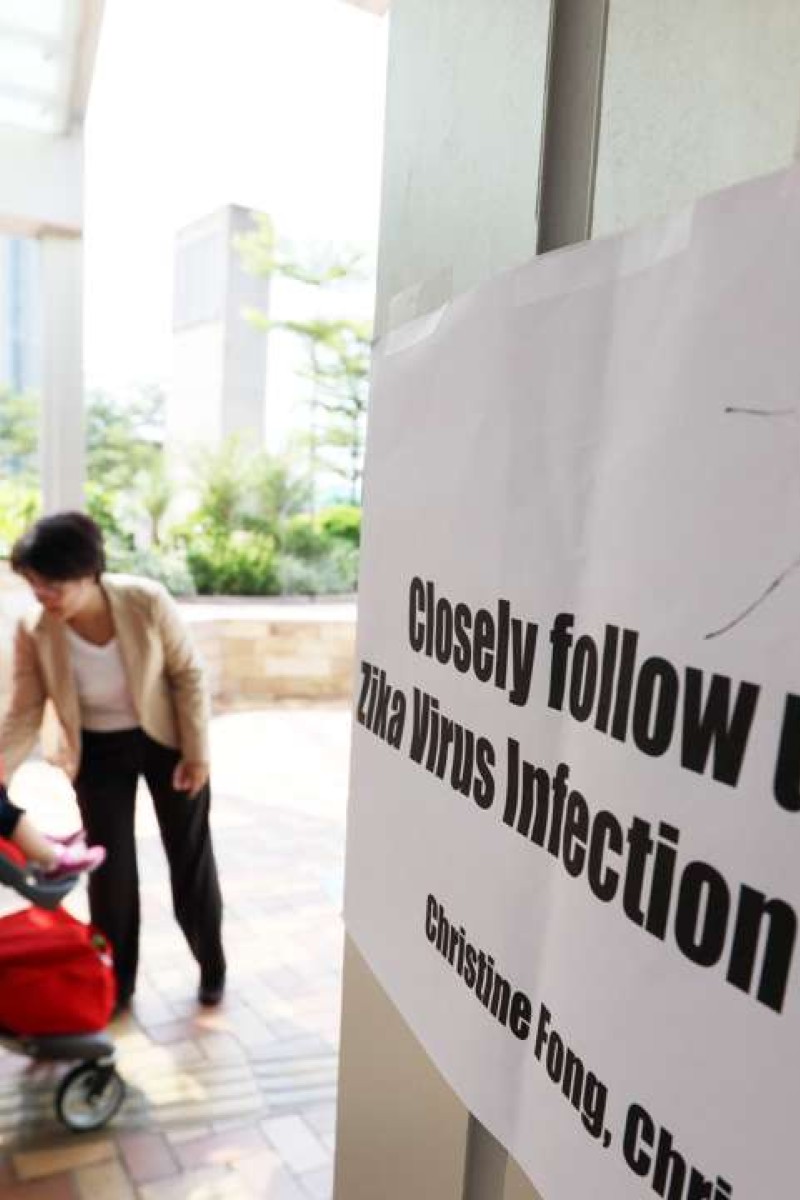
The city is on high alert after confirmation a woman brought back the Zika virus from a trip to the Caribbean
 Zika warnings have appeared all over Lohas Park in Tseung Kwan O.
Zika warnings have appeared all over Lohas Park in Tseung Kwan O. Health authorities in Hong Kong are on high alert after the city’s first case of Zika virus infection was discovered in an expatriate woman who travelled to the Caribbean this month. The 38-year-old is currently in a stable condition in an isolation ward at United Christian Hospital in Kwun Tong. It is believed that she initially refused to cooperate with the Department of Health, and police were eventually called in to help.
She had been on the Caribbean island of Saint-Barthelemy from August 6 to August 20, during which she was bitten by mosquitoes, before returning to Hong Kong on August 22.
The woman, who lives in Lohas Park in Tseung Kwan O and works at the International Finance Centre in Central, is reported to have had a good health record, but had been suffering Zika-like symptoms of joint pains and red eyes since last Saturday.
She sought help at Matilda Medical Centre in Central on Tuesday, but did not require hospital admission. After her blood and urine samples tested positive for the virus on Thursday night, the Department of Health’s Centre for Health Protection was informed.
Under Hong Kong law, consent for medical treatment must be given by the patient in question.
Zareen Chiba, a final-year medical student at the University of Hong Kong, told Young Post that doctors faced a difficult situation when a patient declined medical treatment despite the fact that her disease could endanger public health. “It is within her right to do that. That’s the basis of informed consent,” she said.
When asked under what circumstances the doctors could waive a patient’s consent, Chiba said that treatment might be given regardless of the patient’s wishes if they are mentally incapacitated, or without a proxy or a guardian.
Centre for Health Protection controller Dr Leung Ting-hung said: “We will report the case to the World Health Organisation and continue to liaise with the WHO as well as overseas, neighbouring health authorities to closely monitor the latest developments.”
The centre urged the public to adopt strict anti-mosquito measures and practise safe sex during travel, and warned pregnant women not to travel to affected areas.
The mosquito-borne virus causes a serious birth defect called microcephaly, which can manifest in an underdeveloped brain and small head. Those infected can display flu-like symptoms such as mild fever, rash, joint pain and red eyes.
The Food and Environmental Hygiene Department said last night it would conduct an anti-mosquito operation in Tseung Kwan O, Central, Clear Water Bay and other areas the patient had visited after her return.